When we arrived in Chiang Mai in July, one of the first things we did was to sign up for language classes. The Thai language is not very intuitive and the girls and I wanted to find some way to communicate with the lady who sells mango sticky rice people around us. I often say that half of the girls’ education comes from our conversations with Uber drivers. Here in Thailand, English is not spoken quite as widely – or as well – as other places we’ve been in Asia, so it was time to step up and get on their page!
The three of us speak Spanish from our experience living in Spanish-speaking countries and taking language classes while we were there. But learning Thai was a whole different ball game. Because the alphabet is entirely different than our Western one, the language school separated the instruction into multiple parts. Our first 4 weeks of lessons was only speaking Thai – no reading or writing. Following that, we took private lessons for a few weeks in order to learn a tiny bit of the writing. Learning spoken Thai was very interesting because it has to be taught phonetically. What made it even harder was that there is no standard phonetic spelling of Thai words in English. So how our school teaches Thai to English-speakers was different than what you might find online or from another teacher. It made it really hard to look up words online or check your homework. We pitied the people who took the class who did not speak English as their first language because that was the only bridge that they used in the classroom. The teacher only speaks Thai and English. We agreed that we probably would have given up if we didn’t speak English well!
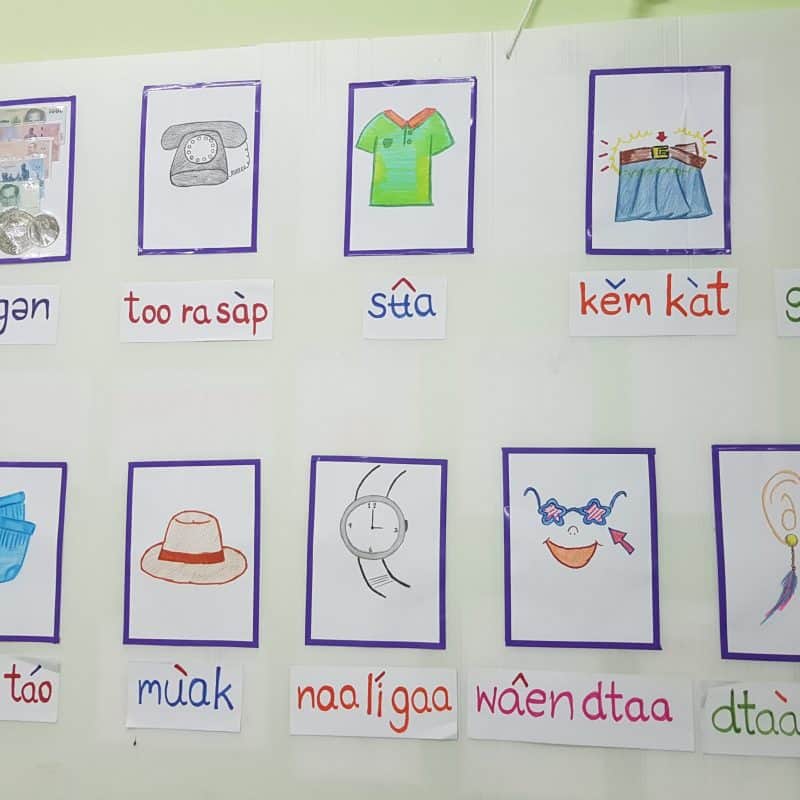
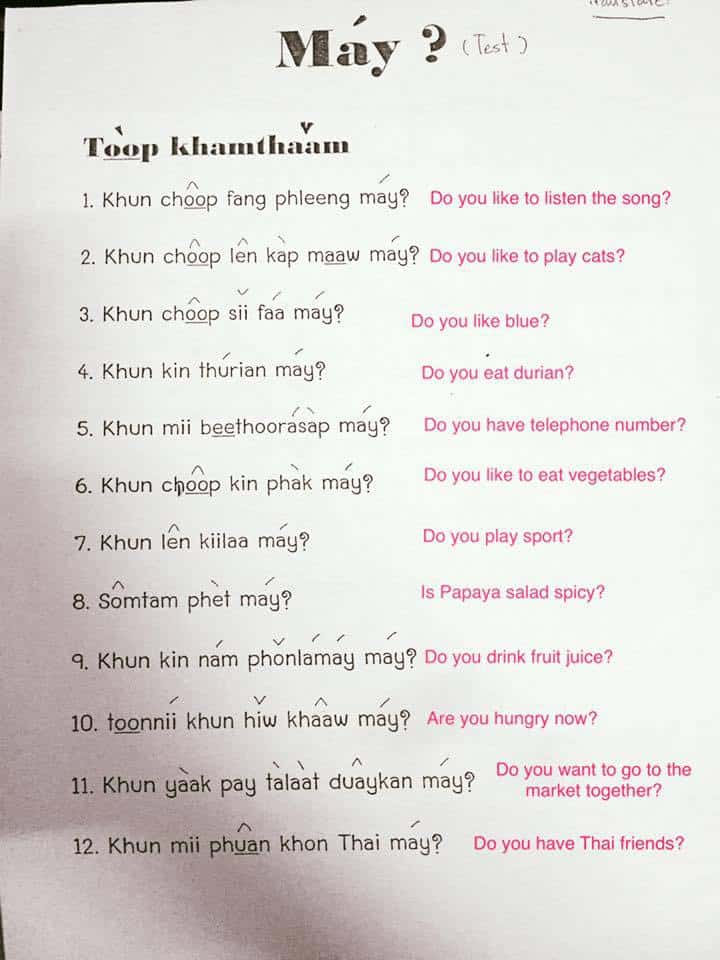
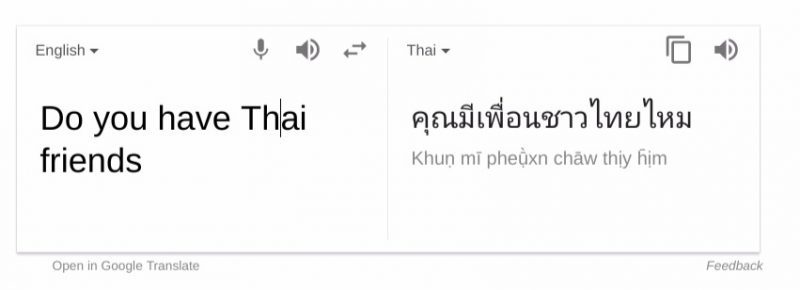
The very first thing they taught us was all the vowels – so. many. vowels! And so many different shapes you have to position your mouth in to get the pronunciation just right. Pronunciation is SUPER important in Thai. The slightest re-positioning of your mouth and you have an entirely different word! And since you rarely saw any Thai words spelled in English around town, it was also a lot harder to remember what you learned.
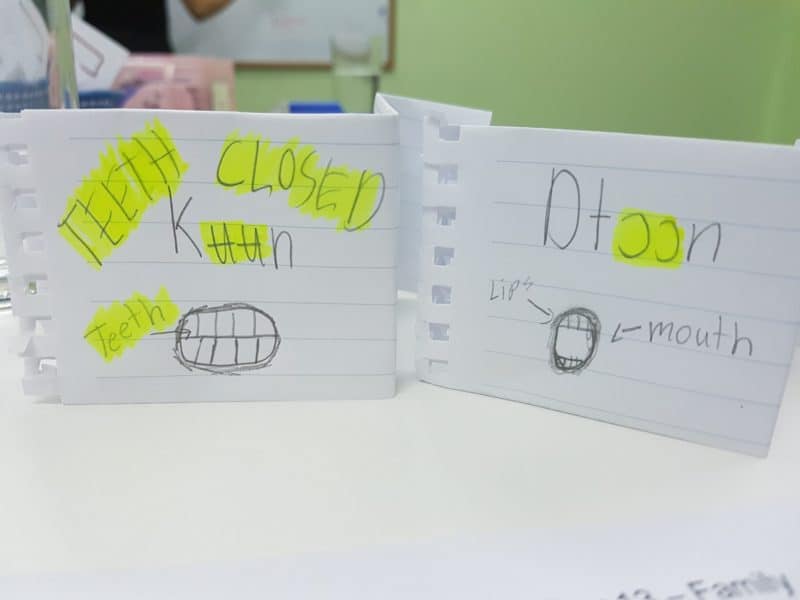
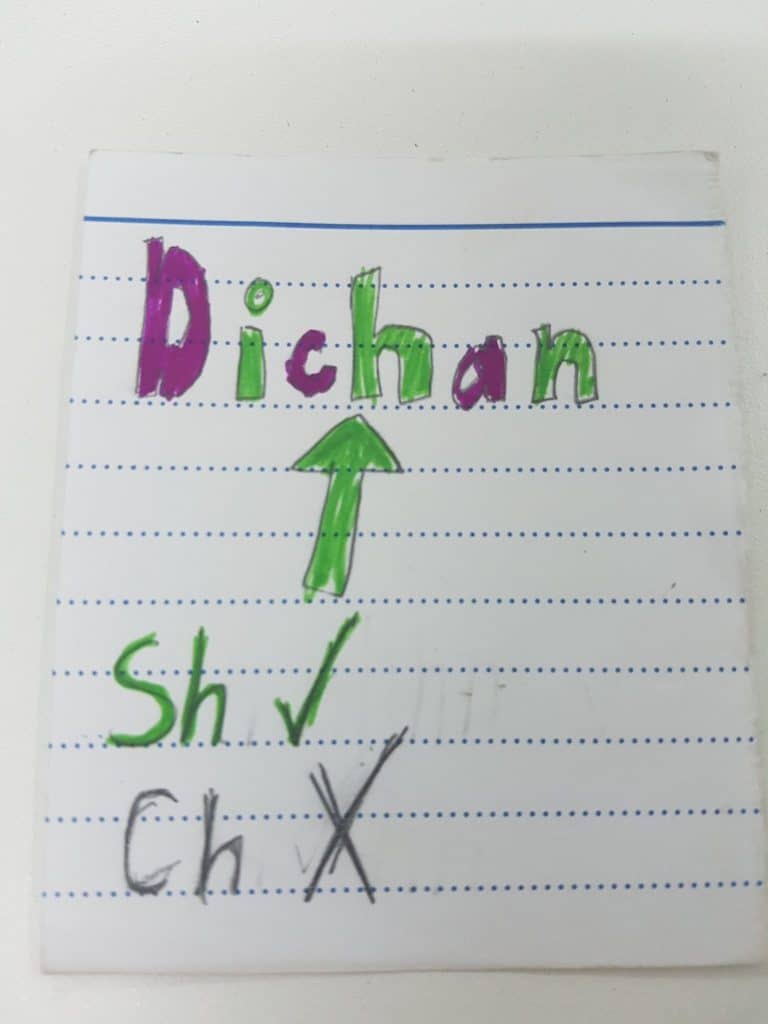
I found it extremely challenging. The girls did a better job than I did but we still did not get “Uber driver conversational” as I would have liked. However, as always, we learned a lot. Here are some of the crazy “aha” and funny things we learned.
- The official name for the city of Bangkok is KrungThep Mahanakhon Amon Rattanakosin Mahinthara Ayuthaya Mahadilok Phop Noppharat Ratchathani Burirom Udomratchaniwet Mahasathan Amon Piman Awatan Sathit Sakkathattiya Witsanukam Prasit. And you thought Mississippi was bad!!
- In Thai, the word for swim is made up of the words play and water. Too cute!
- The word for ice is made up of the words hard + water.
- The word for waterfall is mother + river
- The Thai language does not have the “L” sound. So the unofficial way of asking for the check is to say “check bin” instead of “bill”
- There is also a different way you need to pronounce English words to make it easier for Thai people to understand you. For example, we would say we are from AhmehriGAAAH. And we lived near a mall so we always told Uber to take us to “Prom-a-na-DAAAAAH CHOPping” (It’s called Promeneda Mall but they identify more with the word “shopping” than “mall”.)
- If a Thai person is indicating duplicates in English, they always say “same same”. You can always detect that an English speaker has spent time in Asia when they use this phrase. I have no idea why they say this but I loved it and it’s a permanent part of my speech now. “I’ll have what he’s having. Same same.” The girls roll their eyes.
- Thai language puts question words at the end of the sentence. So to directly translate a Thai sentence you might say “You drive, can or cannot?”. “You learn Thai, yet or not yet?”. I started speaking this way to the kids: “you do your homeschool, yet or not yet? You get the answer, right or not right?”. More eye rolling and sighing from said daughters.
- In Thai language they have no verb tenses – no past, no future, nothing! They use time words to infer tense. So directly translated, it would be “you go yet, yes or no?” or “Monday you teach, yes or no?”.
- There are many different tones for the vowels. These indicate how to emphasize the vowel, either by raising your voice, or making it flat, or lowering, or even the “ladyboy” tone where you raise and lower your intonation during the vowel. Our teacher also called one tone the “Scooby Doo tone” where it’s a little wobbly. The girls were good at the tones but I was horrible at remembering them. Honestly, I often wondered if we were learning to sing instead of learning another language.
- The word for 5 in Thai is pronounced “ha”. Thai people frequently text “55555” as a way to say “LOL or “hahahahaha”.
- Almost every sentence ends with “ka” if you are a girl or “krap” if you are a boy. The way our teacher translated that for us into English was by saying “full stop”. For example she would translate it from Thai by saying “I am from Amerigah full stop”. I felt like we were talking on the CB radio or something… over!
- But sometimes “ka” wasn’t good enough and you end the sentence with “ha”. Why? My teacher says “because it sounds better for a cute Asian girl”. There is a whole “cute Asian girl” culture that I did not even try to understand! (I’m a cute Caucasian lady! Over.)
- They do not have plural nouns in Thai. Again, you just infer or use number words to indicate multiples: “Two egg full stop” = “song kai ka”.
- Thai sentences are very basic. They do not have a lot of extra words. They have no “the” “an” or “a”. Kind of … aaaaaa…. hard to…aaaaa…. hem and ha in Thai, I guess.
- There are only 6 consonants that can be on the end of a word in Thai. In addition, they do not have any letters where air flows over your teeth (like “th” or “s” or “f”). So these sounds in English are particularly difficult for them to pronounce.
- Because of the lack of verb tenses in Thai, we find that they do not use a lot of tenses or extra verbs in English either. A common saying at the store, when they are out of something is “no have”. I found myself speaking that way too: “This medicine. Have or no have?”. Honestly, they tend to understand you better when you speak English the way they speak English.
- The direct translation to their most common greeting wherein they’re just saying hi to you is, “Have you eaten rice yet?” or really it would be “You eat rice, yet or not yet?”. But it really just means “hello”. I found this particularly sweet! For me it would be “You eat mango sticky rice, yet or not yet?”.
- They have a common exchange of “really?” and then the reply of “really!”. This was translated to “jing rah?” and “jing JING!” and you have to get the super high cute Asian girl tone on that last “JING”. Zoe and I perfected it and anytime we hear a “jing rah” we screech “jing JING!” and then collapse laughing. It drove Haley crazy and she said she could hear us in the next room. We will forever remember and love jing jing.
- More compound word fun: the name for hospital was building + nurse. School was building + book.
- When we learned days of the week in Thai we spent a lot of time practicing how to tell people what day of the week we were born on. All the students in class were like “Whaaaa?”. We had no idea what day of the week we were born on. Google helped us, though. Evidently, in this culture, the day of the week you were born is a big deal.
There’s so many more idiosyncrasies to Thai language that I can’t possible explain, but I think you get the gist that it was complicated, and entertaining, and hard. And I didn’t even go into how Thai people use a computer keyboard or a cell phone to text. That’s a whole different story (that I don’t really understand)! But despite our lack of progress, it was well worth the time and effort. Here are a few more pictures of our time at Thai school.
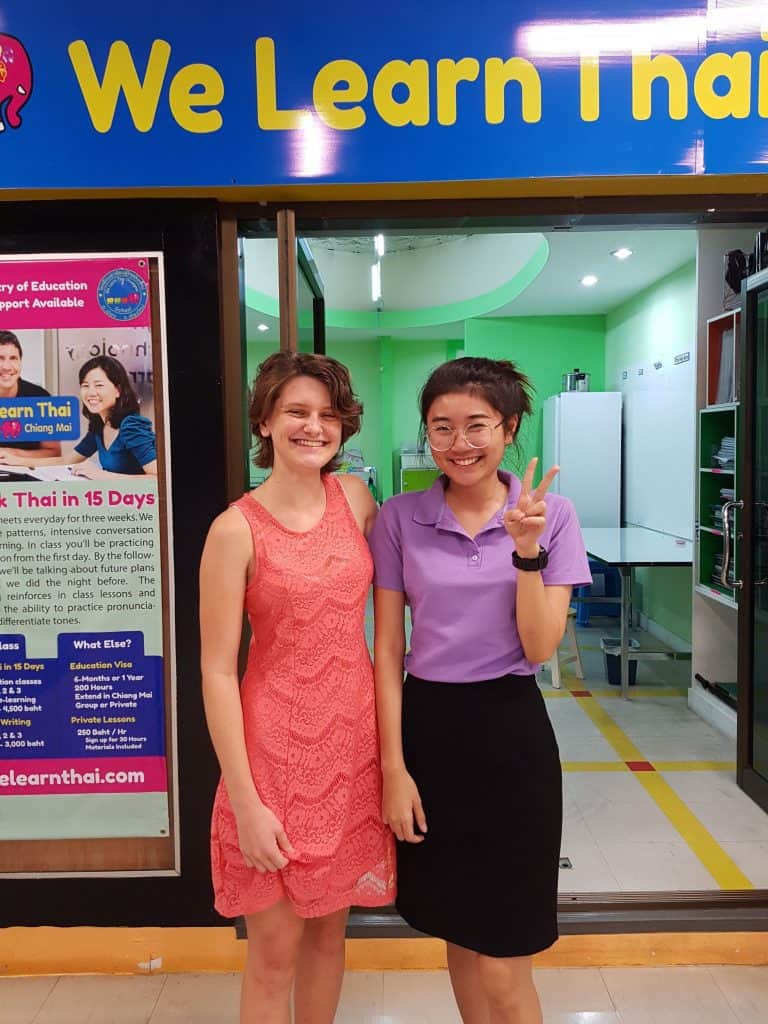
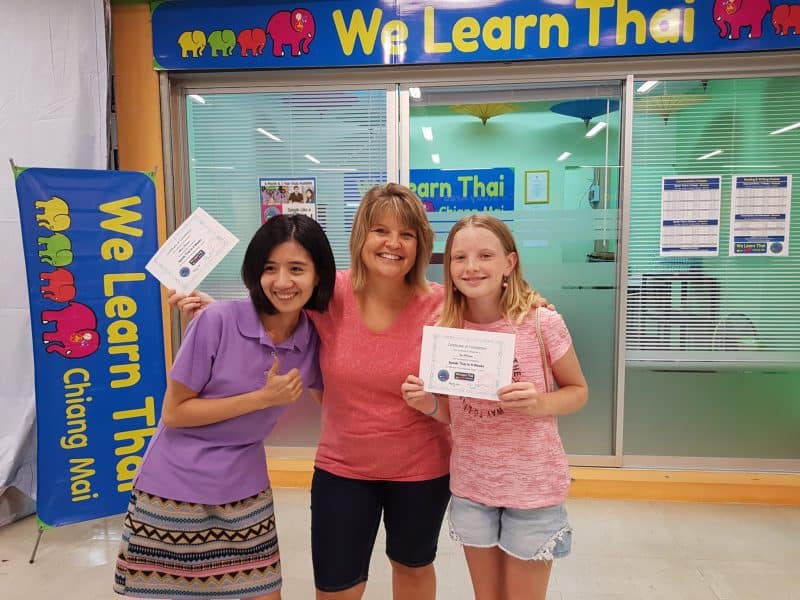
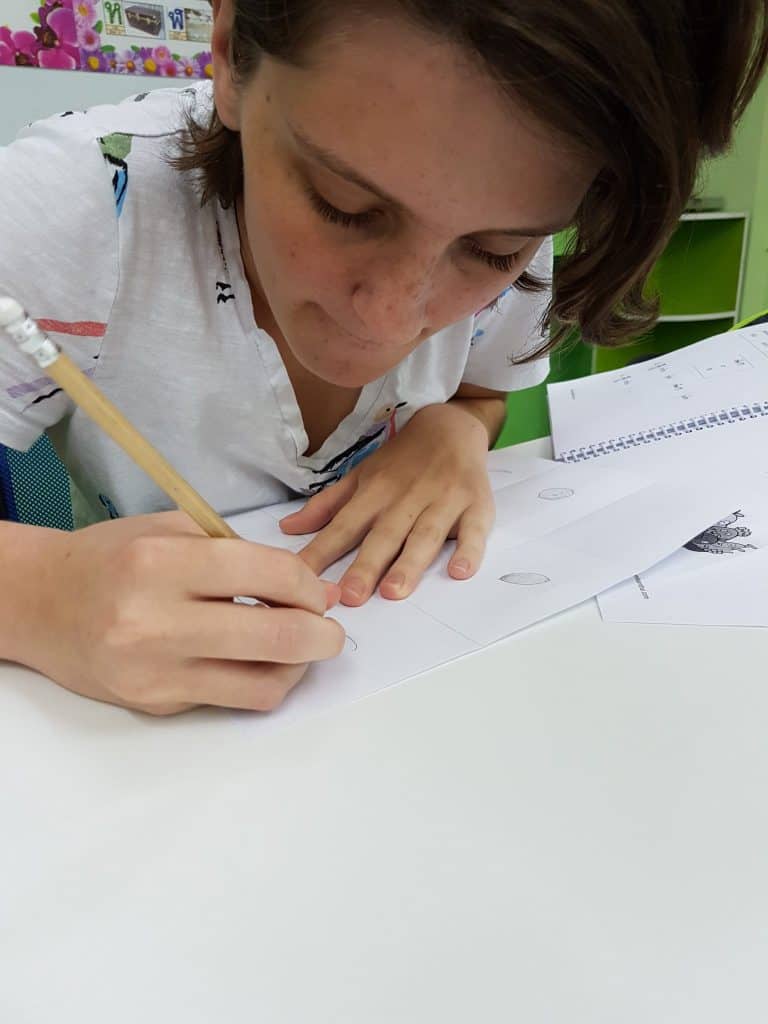
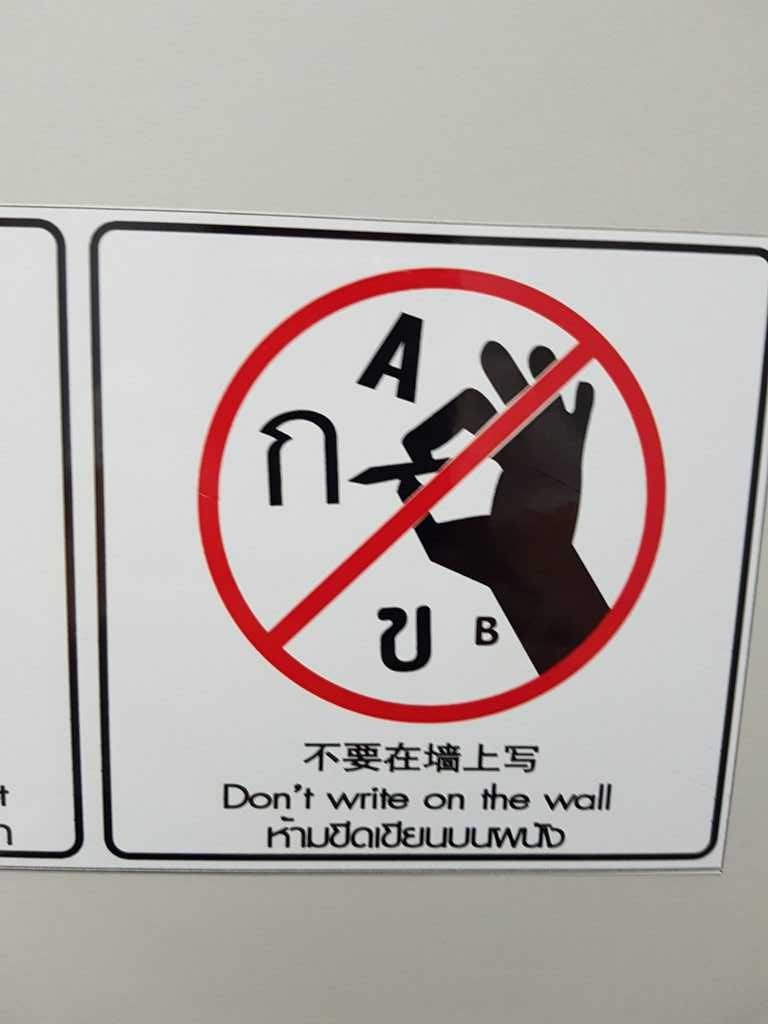
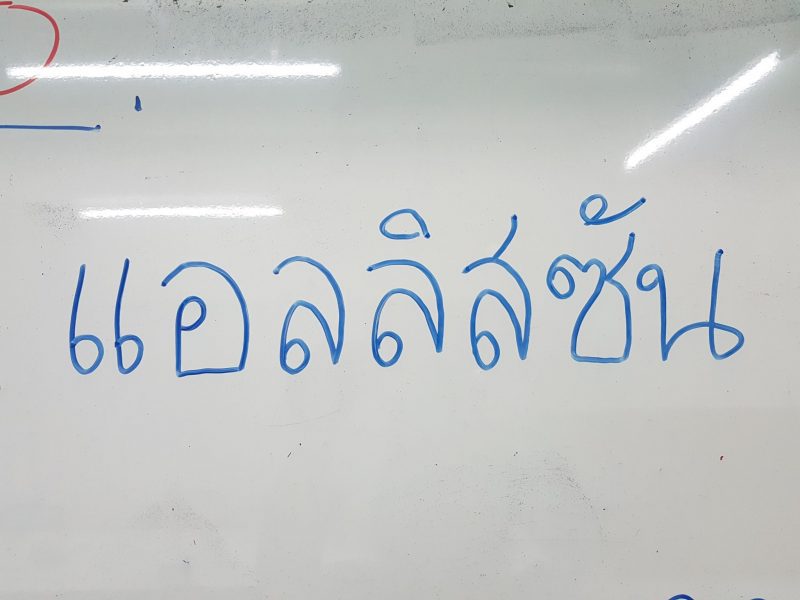

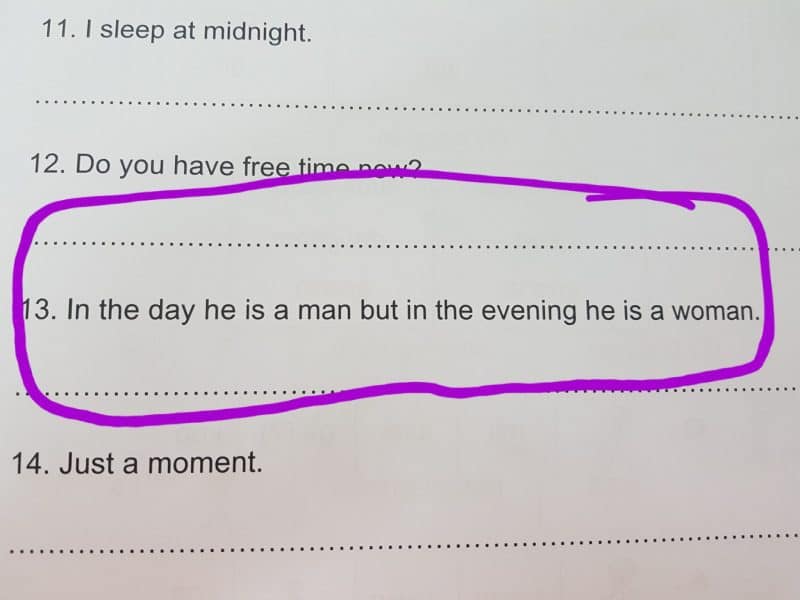
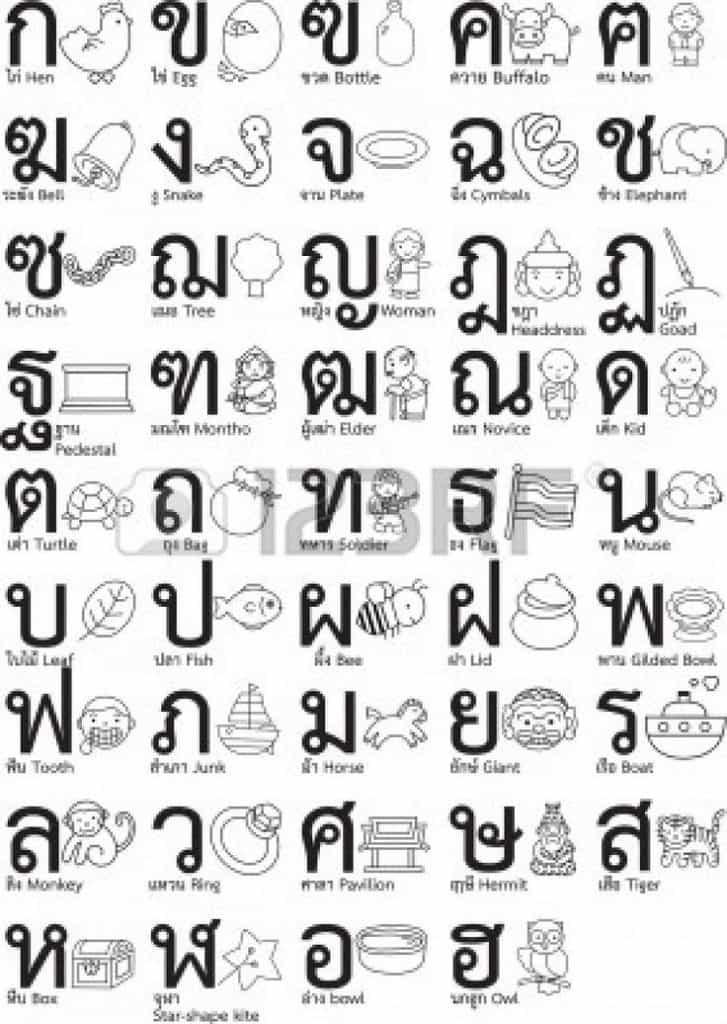
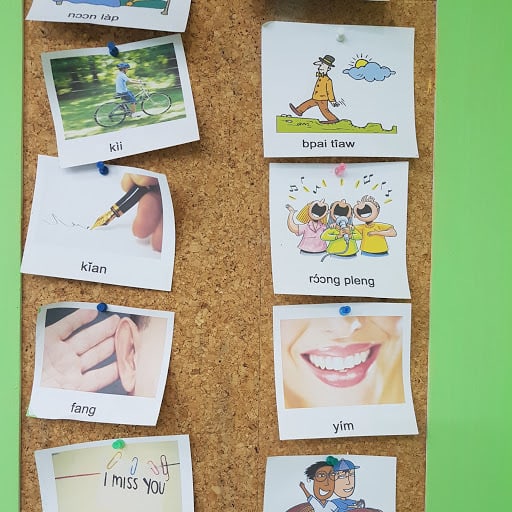
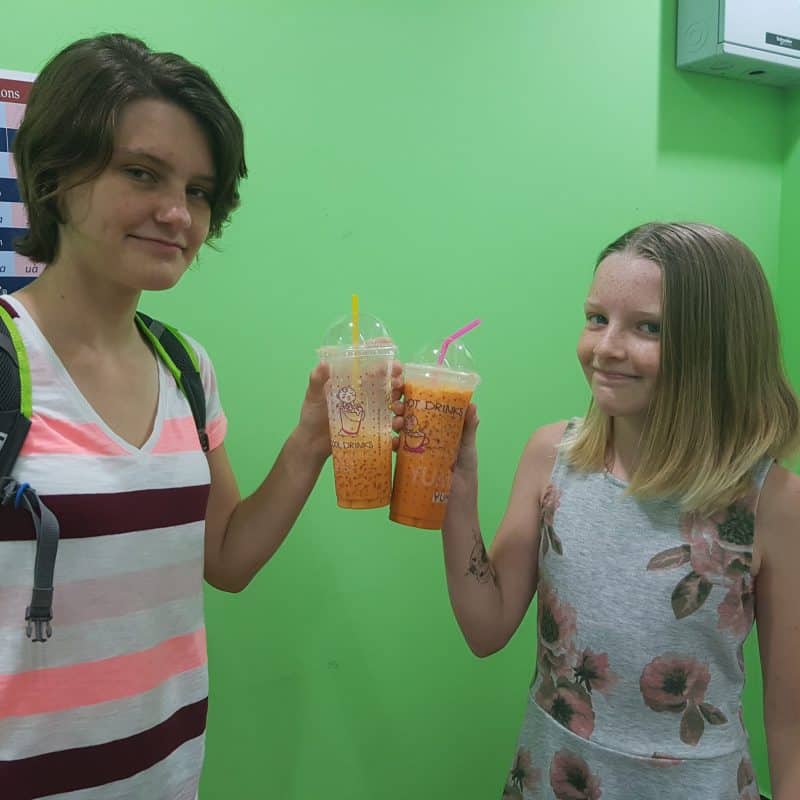
We are really glad we took the classes that we did, and of all of us, Haley learned the most and was able to communicate in the real Thai world better than anyone. I will forever be impressed with anyone who can learn Thai to a conversational level. I was humbled with how hard it was. Jing rah? Jing JING! Ka! 555555!
